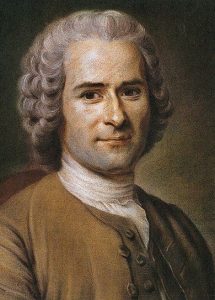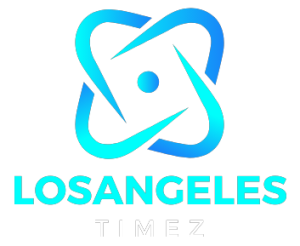Demystifying Politics: What Are Politics, Really?
What Are Politics
Politics shapes our world and involves government activities. It delves into questions of governance’s nature, legitimacy, and public institutions. In essence, it’s about resource allocation. This exploration demystifies politics, unveiling its core components and significance in our lives.
The Core of Politics
At its core, politics refers to the process of governance, decision-making, and the distribution of power within a society. It encompasses how societies organize themselves, resolve conflicts, and make choices that affect their collective future. Also, read about What Does Woke Mean in Politics
The Essence of Political Systems
To truly understand politics, it’s essential to grasp the different political systems that exist worldwide. From democracies to autocracies, we’ll explore the nuances of these systems and the principles that underpin them.
A Historical Perspective
The Evolution of Politics
Politics has a rich history that has evolved over millennia. From the early city-states of Mesopotamia to the modern nation-states of today, the development of political structures has been a continuous journey.
Key Figures in Political Thought
Throughout history, philosophers and thinkers have pondered the nature of politics. We’ll introduce you to the influential ideas of political philosophers such as Aristotle, Machiavelli, and Rousseau, whose theories continue to shape the political landscape. Discover about Who Was India First Female Prime Minister
The Intensity of Politics
Many had concerns in January 2021 when a violent mob gathered at the US Capitol in Washington. Although the rioters eventually dispersed, Congress certified the election results, and President Trump left office, it was an unsettling deviation from the usual presidential transition, particularly in a nation that prides itself on democracy.
However, the divisions that led to the 2021 violence had been brewing long before the 2020 elections. Partisanship, polarization, legislative gridlock, and sharp rhetoric were the outcomes of a process that spanned decades. Now, people are left pondering whether today’s heightened political intensity is a temporary phase or indicative of deeper democratic deterioration.
Politics Is About Making a Difference
Politics serves a fundamental purpose: making a positive impact and striving to enhance the well-being of individuals, thereby fostering a better world for all. It’s a means to effect change, improve lives, and promote justice.
The significance of politics lies in its capacity to cultivate safe, clean communities where everyone enjoys access to quality healthcare, education, and essential necessities like food, water, and shelter. Moreover, politics presents the opportunity to create pathways for those who need them the most:
Individuals without access to legal representation or affordable housing
People facing job discrimination based on race or gender identity
Families affected by unjust immigration laws
Anyone encountering obstacles due to systemic racism or discrimination against marginalized groups in today’s society.
Contemporary Political Realities
The Role of Government
In the contemporary world, politics is intertwined with the role of governments. We’ll explore how governments function, their branches, and the mechanisms they employ to make decisions and enforce laws.
Political Parties and Ideologies
Political parties are the vehicles through which political power is pursued and wielded. We’ll examine the role of political parties and the various ideologies that guide them, from conservatism to liberalism and everything in between.
Global Perspectives
Comparative Politics
To understand what politics is, we must examine it from a global perspective. We’ll compare political systems, policies, and approaches from various countries, shedding light on the diversity of political practices worldwide.
Political Hot Topics
Current events and contemporary issues often dominate political discussions. We’ll delve into some of the most pressing political topics, from climate change and human rights to international relations and conflict resolution.
The Mechanics of Decision-Making
The Political Process
Politics is not merely an abstract concept; it’s a process. We’ll walk you through the steps involved in the political process, from elections and legislation to public policy and diplomacy.
The Influence of Media
In today’s digital age, the media plays a pivotal role in shaping political narratives. We’ll discuss the influence of the media on politics, exploring how information dissemination can impact public opinion and political outcomes.

The Citizen’s Role
Civic Engagement
Citizens are essential players in the realm of politics. We’ll highlight the significance of civic engagement, including voting, advocacy, and participation in the democratic process.
Political Awareness
An informed citizenry is crucial for the proper functioning of a democracy. We’ll emphasize the importance of staying politically aware and the tools available for individuals to stay informed.
Challenges and Debates
Controversies in Politics
The world of politics is not without its controversies. We’ll explore some of the most contentious issues, including political polarization, the role of money in politics, and the balance between security and civil liberties.
Conclusion
In “Demystifying Politics: What Are Politics, Really?” We’ve peeled back the layers of this complex and influential concept. By understanding the essence of politics, the historical context, and its contemporary realities, we hope to empower you with the knowledge needed to engage with and navigate the world of politics more effectively. Politics may be a multifaceted subject, but at its heart, it’s about the power to shape the future. It’s about you, your community, and the world we all share.
FAQs
What is the meaning of politics?
Politics refers to the process of governance, decision-making, and the distribution of power within a society. It encompasses how societies organize themselves, resolve conflicts, and make choices that affect their collective future.
Why is it important to understand politics?
Understanding politics is vital because it shapes the world we live in. It helps us make informed decisions, engage in civic activities, and participate in the democratic process. Political decisions impact our lives and communities.
What are the different types of political systems?
Political systems vary widely and include democracies, monarchies, autocracies, and more. Each has its own principles and methods for governing a society.
Who are some influential political philosophers in history?
Some influential political philosophers include Aristotle, Niccolò Machiavelli, Jean-Jacques Rousseau, John Locke, and Thomas Hobbes, among others. Their ideas have significantly shaped political thought.
How does the media influence politics?
The media plays a significant role in shaping political narratives and public opinion. It can impact elections, government policies, and political discourse.
